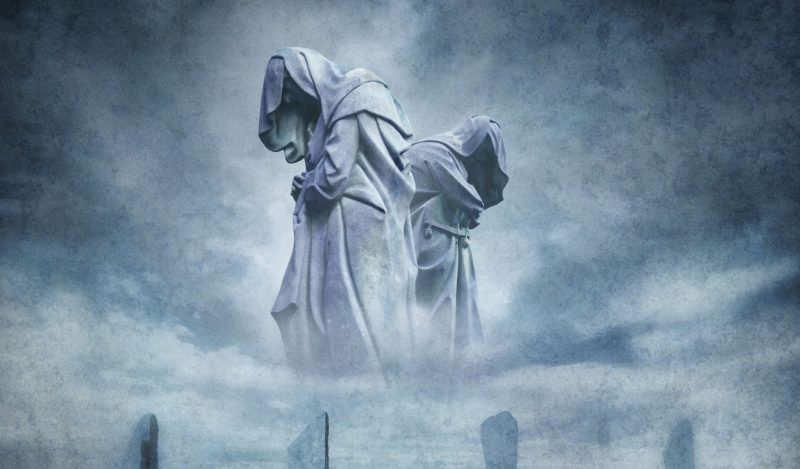How many people have noticed that, today – since at least the beginning of the so-called ‘pandemic,’ but probably earlier – governments, or constitutionally speaking, those who occupy the position of the ‘state,’ have acted as if citizens have no rights, and as if the state is beyond any criticism in what government officials do, or decree?
It is as if governments today have taken Thomas Hobbes’s 17th-century absolutist political philosophy, expressed in his famous book, Leviathan (1651), so seriously that they have ignored the alternative line of thinking that insists on a social contract between the people and the sovereign, where both parties are supposed to adhere to the terms of the contract, and not only the people.
In contrast with Hobbes arguing in favour of the absolute sovereignty of the monarch, even the mild Immanuel Kant, in his late 18th-century essay, “What is Enlightenment?” hinted at the possibility that the people might not dutifully remain obedient to the monarch if the latter deviates from his duty to the people.
Hobbes proposes a social contract where the people surrender their rights to the ruler, and where the latter is supposed to provide peace and security, but is not subject to any obligation. Somewhat one-sided, one might observe.
A brief sketch of Hobbes’s conception of the absolute ruler will be sufficient to allow anyone who has been wide awake these past four years to recognise its increasingly visible mirror image in the behaviour of governments worldwide since 2020. The ‘rights’ which Hobbes attributes to the sovereign must be understood against the backdrop of the philosopher’s contention that, while humans are certainly ‘free’ in the state of nature, the state of civilisation is preferable to the former, or nature, of which Hobbes wrote (Leviathan, 1651, in the public domain: 110):
In such condition there is no place for industry, because the fruit thereof is uncertain: and consequently no culture of the earth; no navigation, nor use of the commodities that may be imported by sea; no commodious building; no instruments of moving and removing such things as require much force; no knowledge of the face of the earth; no account of time; no arts; no letters; no society; and which is worst of all, continual fear, and danger of violent death; and the life of man, solitary, poor, nasty, brutish, and short.
This is certainly a persuasive apology for being civilised (although other philosophers, including John Locke and Jean-Jacques Rousseau, were more sanguine about living in the state of nature), and Hobbes believed that it was not too high a price to pay for its attractions to cede all one’s rights to the state – or what he calls the ‘Commonwealth’ – in exchange for the security that would enable one to live such a constructive civilised life. In Chapter XVIII (pp. 152-162) of Leviathan, itself a metaphor for the state, Hobbes gives an account of “the rights of sovereigns by Institution,” which latter condition occurs when:
…a multitude of men do agree, and covenant, every one with every one, that to whatsoever man, or assembly of men, shall be given by the major part the right to present the person of them all, that is to say, to be their representative; every one, as well he that voted for it as he that voted against it, shall authorize all the actions and judgements of that man, or assembly of men, in the same manner as if they were his own, to the end to live peaceably amongst themselves, and be protected against other men.
The price to be paid for security, in other words, is to relinquish that freedom, minus security, of course, that one once had in the state of nature. One should note that the state is supposed to provide the security necessary for civilisation to flourish. Note, too, that the sovereign need not be a monarch; it could be an “assembly of men,” as Hobbes put it above. In his elaboration on the implications and consequences of the contract – what Hobbes calls the “covenant” – he observes that this contract, once concluded, is binding, which means that no one can voluntarily withdraw from it, or enter into a contract with another party (not even God, who is represented by the sovereign) that supposedly replaces the original covenant.
Secondly, according to Hobbes, because the people entrust the sovereign with the right “of bearing the person of them all,” and not vice versa, the sovereign cannot break the contract; only the people can. Further, as Hobbes put it: “…consequently none of his subjects, by any pretence of forfeiture, can be freed from his subjection.” A pretty grim picture for the people, I would say. Moreover, anyone who dissented when the majority of citizens granted the sovereign the right to rule over them, is bound by the majority decision; should he or she withdraw from the contract and return to the state of nature, as it were, they expose themselves to their own ‘just’ destruction under the law of the covenant.
Furthermore, given that subjects have given the sovereign the right of rule, nothing that the latter can do can be regarded as unjust: “…whatsoever he doth, can be no injury to any of his subjects; nor ought he to be by any of them accused of injustice.” Nor can the sovereign ever “justly be put to death,” or in any way be punished by his subjects, according to Hobbes. Because the sovereign as institution is justified by the “end” of maintaining “peace and defence,” the means of doing so falls to their discretion. Similarly, the sovereign has the power:
…to be judge of what opinions and doctrines are averse, and what conducing to peace; and consequently, on what occasions, how far, and what men are to be trusted withal in speaking to multitudes of people; and who shall examine the doctrines of all books before they be published. For the actions of men proceed from their opinions, and in the well governing of opinions consisteth the well governing of men’s actions in order to their peace and concord. And though in matter of doctrine nothing to be regarded but the truth, yet this is not repugnant to regulating of the same by peace.
Does this not ring a bell loudly and clearly with regard to the present we live in? And the bell is called ‘censorship,’ which governments seem to view as their prerogative – witness the Online Safety Bill that was passed in the United Kingdom on 19 September 2023 as just one such example. I need not elaborate on the multiple attempts in America and in Europe to rein in free speech; they are legion. But fortunately people are fighting back – Brownstone, Elon Musk, and others.
The Hobbesian sovereign (king or assembly) further has the power of prescribing the rules – or “civil laws” – that determine what may or may not be done and enjoyed without fear of being prevented from doing so by other citizens. Such rules of “propriety” – “of good, evil, lawful, and unlawful” – differentiate between the state of nature and perpetual war, on the one hand, and the Commonwealth, on the other, where peace is maintained through them, among other things.
This stipulation, too, resonates with current conditions, where governments apparently increasingly regard it as their prerogative to determine what is “good, evil, lawful, and unlawful” – the execration of those who refused the ‘vax’ as ‘anti-vaxxers,’ liable to be ‘granny-killers,’ or the pejorative reference to ‘the pandemic of the unvaccinated’ by people like Joe Biden, is still fresh in one’s memory.
What is conspicuously absent, however, are sustained attempts by the ‘sovereign’ to secure and maintain peace; instead, what one witnesses instead are actions on the part of governments to foment war, either through prodigious and unsustainable funding of conflicts, or acts of negligence that may lead to conflict, such as allowing uncontrolled borders. But then – the sovereign, for Hobbes, is under no obligation to do these things.
Sovereignty also has the right of “judicature” (legal appointments and arbitration), to prevent controversies from causing an internecine war (akin to that which supposedly obtains in nature) all over again, and the right to wage war or make peace with other nations, depending on what is judged to be for the public good. The appointment of ministers, magistrates, counsellors, and officers also depends on the sovereign, to promote peace and defence of the Commonwealth.
The right to reward and punish according to the laws governing citizens’ actions further falls within the sovereign’s rights, and also the right to bestow honours on individuals to promote the values concerning mutual respect which would prevent debilitating quarrels.
Contemporary governments certainly avail themselves of the ‘right’ to wage war, while not even bothering to follow the route of formally declaring war against an adversary. Instead it is disguised as financial and military ‘aid’ to a foreign state waging war on one’s behalf. And the question of ‘the public good’ is never raised and debated, despite objections from many quarters, which point out that the public in one’s own country is suffering economically because of the largesse so generously dispensed to the defence of a foreign country that is precisely that – foreign – to most citizens. But again, governments that appear to model themselves on the ‘sovereign’ according to Hobbes, are not obliged to be accountable to the people.
Considering these “rights which make the essence of sovereignty,” it does not take too much of a mental stretch to conclude that we live at a time when these have been appropriated by governments worldwide, essentially leaving political subjects with no rights or recourse like that which they (believed they) enjoyed before.
To be sure, the impression is created that such recourse still obtains – for example to the judiciary – to rein in the worst excesses of the state. But given the (by now) well-known phenomenon of government capture of state functions like that of the Attorney General and of the FBI in the US, it must be apparent that governments are in the process of usurping the role of ‘sovereign’ which – á la Hobbes – owes the citizenry, devoid of rights, nothing.
It is there, putatively, to maintain peace and defend the Commonwealth – and it is certain that, when challenged on this, governments would argue strenuously that this is precisely what they are promoting. But most of ‘us’ – those people who are wide awake – know that it amounts to a sophisticated trompe l’oeil of the (dis-)informational kind. Putting it another way, citizens still have constitutional rights at de jure level, but at the de facto niveau these are being stripped away by governments, which have assumed the role of an absolutist Hobbesian sovereign.
Here it is advisable to remind oneself of the meaning of political absolutism, which amounts to unconditional sovereign authority, accompanied – as implied – by the absence of any right to resist such authority. That is the consequence of the one-sided contract where the people have relinquished their so-called ‘natural rights’ (which were obtained in the supposedly ‘violent’ state of nature) by surrendering these to the ‘absolute’ sovereign. In contrast to Hobbes’s unilateral social contract, the one proposed by John Locke in the 17th century – which strongly influenced American revolutionaries – makes explicit provision for revolt on the part of the people, should governments abuse their power. Perhaps one should keep this firmly in mind, together with those rights enshrined in a country’s Constitution.
Casting one’s eye over the list of ‘rights’ of the sovereign – either monarch or parliament – according to Hobbes, it appears to me that, since the advent of the so-called ‘pandemic’ in 2020, a Hobbesian revision of (what used to be) citizens’ rights has been implemented. The initial, drastic stripping away of such rights under ‘pandemic’ conditions was justified iatrocratically – that is, through the rule of physicians such as Anthony Fauci – and although such justification is no longer possible at present (but may be used again in the event of another ‘pandemic’), these rights remain very much under threat.
I need not remind anyone of what these are, but what comes to mind immediately is the right to free speech (which was, and still is, to a large extent, censored), the right of assembly (healthy people were ‘quarantined,’ incongruously) and the right to bodily integrity (pseudo-vaccines were enforced through mandates), all of which were violated during the ‘pandemic.’ It should be clear that this Hobbesian revival does not augur well for the future, and should be resisted with all the means at one’s disposal.
Published under a Creative Commons Attribution 4.0 International License
For reprints, please set the canonical link back to the original Brownstone Institute Article and Author.









